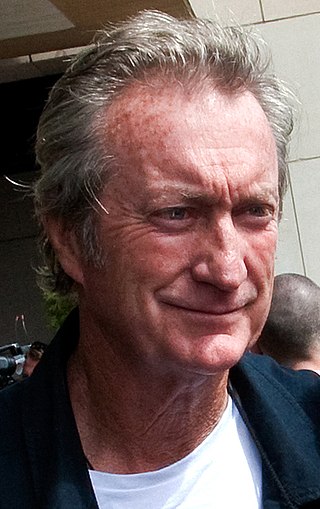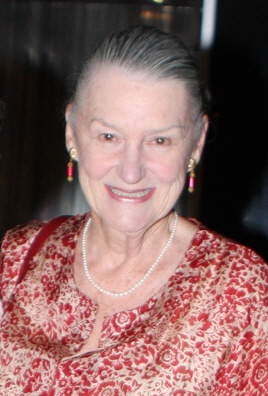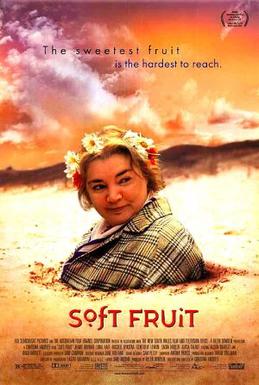
Bryan Neathway Brown AM is an Australian actor. He has performed in over eighty film and television projects since the late 1970s, both in his native Australia and abroad. Notable films include Breaker Morant (1980), Give My Regards to Broad Street (1984), F/X (1986), Tai-Pan (1986), Cocktail (1988), Gorillas in the Mist (1988), F/X2 (1991), Along Came Polly (2004), Australia (2008), Kill Me Three Times (2014) and Gods of Egypt (2016). He was nominated for a Golden Globe Award and an Emmy Award for his performance in the television miniseries The Thorn Birds (1983).

Margaret Helen Dence is an Australian actress of stage and screen, with a career spanning some seven decades. She is equally at home in both comedy and drama roles.
Byron Eric Kennedy was an Australian film producer known for co-creating the Mad Max series of films with George Miller.
Candida Raymond is an Australian actress of film and television during the 1970s and early 1980s.
George Buchan Ogilvie was a prolific Australian theatre director and actor, who also worked as a director and actor in film and television. He was known for being the founding artistic director of the State Theatre Company of South Australia, and was also an educator.

Soft Fruit is a 1999 comedy drama film about a dying mother and her children who come together to fulfill her last wishes. It is an Australian American co-production produced by New Zealand filmmaker Jane Campion and directed by Christina Andreef.
2000 Weeks is a 1969 Australian drama film directed by Tim Burstall and starring Mark McManus, Jeanie Drynan, and Eileen Chapman.
Jeanie Drynan is an Australian film and television actress well known for her roles in the television series Class of '74, as Muriel's mother in the 1994 film Muriel's Wedding and as solicitor Angela Jeffries in the cult classic television series Prisoner Cell Block H.
Antony I. "Tony" Ginnane is an Australian film producer, best known for his work in the exploitation genre. He was head of the Screen Producers Association of Australia from 2008 to 2011.
Phillip Avalon is an Australian writer, producer, director and actor of films and TV.
Igor Auzins is an Australian filmmaker. He joined Crawford Productions in 1969, worked as a cameraman, and then a director. He made documentaries for the South Australian Film Corporation, TV commercials, tele movies and features.
Raw Nerve is a 1990 Australian film directed by Tony Wellington and starring Rebecca Rigg, Kelly Dingwall, and John Polson. The plot concerns three teenagers who rob a house.
Prejudice, working title Harassed, is a 1989 television film about two women who go to the Anti-Discrimination Board. It was one of a series of TV movies about social issues made by Film Australia with the Nine Network. This docu-drama looks at sexual harassment and racial discrimination. The lead actresses improvised based on scene outlines based on real accounts and acted along with real staff from the Anti-Discrimination Board.
Sisterly Love is a 1987 Australian television film shot in Western Australia. Nominated for 3 AFI Awards in 1988 including Best Telefeature. It was also the pilot for an unmade series.
How Willingly You Sing is a 1975 low budget Australian feature film. It was shot over four weeks.
Under the Skin is a 1994 Australian anthology television series. It consisted of twelve half-hour dramas, each reflecting different aspects of Australian cultural and regional diversity.
The Last Tasmanian is a 1978 documentary about the decline of Tasmania's Aboriginal people in the nineteenth century including through genocide by European colonists.
The 30th Australian Film Institute Awards were awards held by the Australian Film Institute to celebrate the best of Australian films and television of 1988. Twenty six films were entered for the feature film categories.
The 32nd Australian Film Institute Awards were awards held by the Australian Film Institute to celebrate the best of Australian films and television of 1990. Twenty films competed in the feature film categories.
The 29th Australian Film Institute Awards were awards held by the Australian Film Institute to celebrate the best of Australian films and television of 1987. The awards ceremony was held at the Palais Theatre in Melbourne on 9 October 1987.



